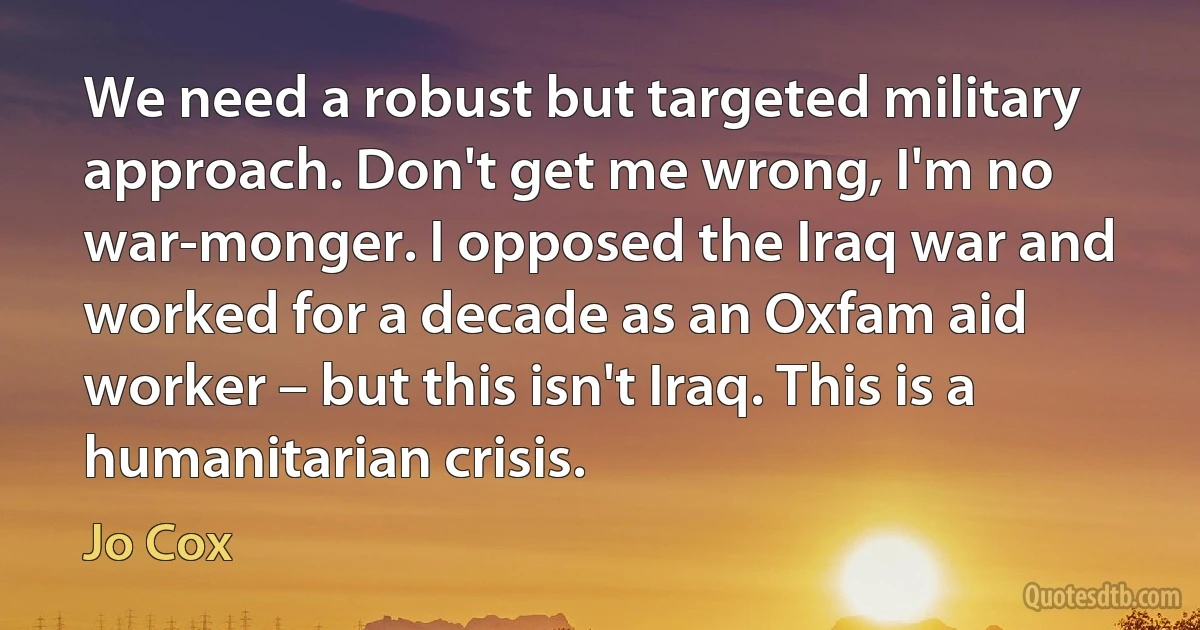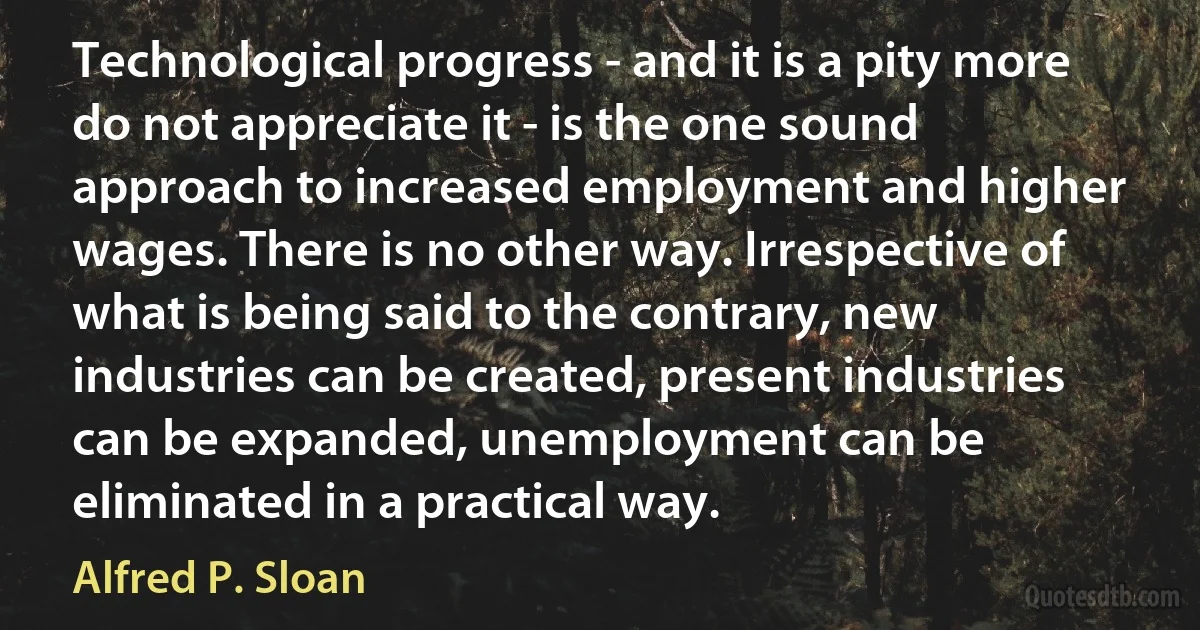Approach Quotes - page 35
The classic rationalists did not consider the members of an organization as human beings, but just as cogs in the machine. For them, workers were only hands. The human relations approach has shown how incomplete this rationale was. It has also made it possible to consider workers as creatures of feeling, who are moved by the impact of the so-called rational decisions taken above then, and will react to them. A human being, however, does not have only a hand a heart. He also had a head, which means that he is free to play his own game.

Michel Crozier
The more successfully we learn and practice the gospel of plasticity, the less suitable we become as subjects of the necessitarian styles of social and historical analysis that the great social theorists have taught us. We can, in fact, raise a storm in the world and still understand and explain ourselves. All we need is a better approach.

Roberto Mangabeira Unger
It has been a continuing theme of this book that our commitment to any approach to the problems of existence (the overcoming of the world, the humanization of the world, and the struggle with the world first among them) can enjoy no definitive justification. Its demands always exceed, immeasurably, its grounds for making them. It says, "Follow me.” It can never give a conclusive reason to do so. All that it can do is to make an incomplete argument and a defeasible appeal. It cannot escape the circularity in all our large-scale transformative projects: for better or worse, each of them is a partly self-fulfilling prophecy. If it is embraced and it works, it remakes part of experience in its image.

Roberto Mangabeira Unger
The concept of the "organic growth” of mankind, as we have proposed in this report, is intended as a contribution toward achieving that end. Were mankind to embark on a path of organic growth, the world would emerge as a system of interdependent and harmonious parts, each making its own unique contributions, be it in economics, resources, or culture.
... Such an approach must start from and preserve the world's regional diversity. Paths of development, region-specific rather than based on narrow national interests, must be designed to lead to a sustainable balance between the interdependent world-regions and to global harmony – that is, to mankind's growth as an "organic entity” from its present barely embryonic state.

Mihajlo D. Mesarovic
How should one approach the person of van Gogh in order to be able to build a statue of him? How can one place him outside of himself, separate him from the tragic character of his life? How can one build a statue in the open air which simultaneously evokes the rare and the new person who was van Gogh, as also the enormity of the new aspect of the current and future art of painting?

Ossip Zadkine
The object of this paper is to give a satisfactory account of the Foundations of Mathematics in accordance with the general method of Frege, Whitehead and Russell. Following these authorities, I hold that mathematics is part of logic, and so belong to what may be called the logical school as opposed to the formalist and intuitionist schools. I have therefore taken Principia Mathematica as a basis for discussion and ammendment; and believe myself to have discovered how, by using the work of Mr Ludwig Wittgenstein, it can be rendered free from the serious objections which have caused its rejection by the majority of German authorities, who have deserted altogether its line of approach.

Frank P. Ramsey
We in India, as a result of our planned economic development, not central planning, but mixed planning, mixed economy, we have experimented with, we have moved to a stage of partial maturity of the economy, when we needed new forms of management, new forms of, expression of the spirit of enterprise, so that the economy can move forward. The compulsion to liberalisation and globalisation arose from this. This is why we say that India's liberalisation is an irreversible process.... and, in a vast country, with millions of people and poverty, rampant, we cannot liberalise recklessly, in such a way that the balance of the society is upset and while some sections would flourish, make profits, the rest of the people would be left without employment and be helpless. Therefore, we have to have a balanced approach to liberalisation and also to globalisation.

K. R. Narayanan
My image of a President before I came here, and before I had any hope of coming here, was that of a rubber-stamp President, to be frank. This is the image I got. But having come here, I find that the image is not quite correct. I thought, I will have lot of time, leisure for reading, writing, waking etc. But somehow I find I can't get it now. So, my image of a President is of a working President, not an executive President, but a working President, and working within the four corners of the Constitution. It gives very little direct power or influence to him to interfere in matters or affect the course of events, but there is a subtle influence of the office of the President on the executive and the arms of the government and on the public as a whole. It is a position which has to be used with the, what I should say, with a philosophy of indirect approach.

K. R. Narayanan
Some of the biggest changes have been in the process of generating business strategies-what I call "strategy work.” Around 1980, the received wisdom was to decentralize into business units, which would each generate a strategic plan. These plans were then amalgamated up the hierarchy, in some portfolio way, for senior management. That approach has all but disappeared, and we've seen a dramatic recentralization of strategy work.

Richard Rumelt
A work of genius is a complex object and there is light to be shed about what went into the making of it. Even in the case of scientific and mathematical achievement we can say a great deal about the existing state of knowledge, the problems it failed to address, why those problems were or had become interesting, the particular capacities which the solver brought to their solution. At the other extreme is a work of art which seems to have much more immediate roots in the personal life of the artist or writer. In between is the area in which Keynes worked, which was partly scientific, partly artistic. This gives a wide justification for a biographical approach. As I put it in the introduction to my first volume: 'If underlying Keynesian theory was Keynes's vision of his age, knowledge of his state of mind and the circumstances which formed it is essential, not only in order to understand how he came to see the world as he did, but also in order to pass judgement on the theory itself.

Robert Skidelsky
Too many in Washington display a ruling class mentality and congressional term limits would go a long way towards restoring the citizen-legislator ethos of the Founding Fathers, Americans of all political background overwhelmingly support term limits, yet term limits have floundered in Congress. An approach that phases in congressional term limits reconciles the self-interest of members of Congress with the public–s desire to see these changes enacted and gives us the best chance to make term limits a reality.

Ron DeSantis
In string theory one studies strings moving in a fixed classical spacetime. ...what we call a background-dependent approach. ...One of the fundamental discoveries of Einstein is that there is no fixed background. The very geometry of space and time is a dynamical system that evolves in time. The experimental observations that energy leaks from binary pulsars in the form of gravitational waves-at the rate predicted by general relativity to the... accuracy of eleven decimal places-tell us that there is no more a fixed background of spacetime geometry than there are fixed crystal spheres holding the planets up.

Lee Smolin
By The middle of The 1920s General Motors had accomplished some things, but apart from survival and reorganization, they were more in the realm of the mind than of reality. We knew, as I have related, the strategy with which we proposed to approach the car business, how we proposed to manage the enterprise financially, and the relationships we wanted to establish among persons in different roles. But by the end of 1924 little of this was reflected in Our activities in the automobile market. That our volume of business had increased after the slump of 1921 - and especially in 1923 - could be attributed less to our own wits than to the improvement in the general economy and the rising demand for automobiles. While internally we had made much progress, externally we had marked time. But the time had come to act.

Alfred P. Sloan
The communist peasant-nationalist regimes of Asia, relying on the Führerprinzip, extreme ethnocentric nationalism, and racism (and the ultimately grotesque in antimodernism in the case of the Cambodia of the Khmer Rouge) seem to some to represent the fascistization of communism. There is no doubt that, as discussed earlier, fascism and communism share many fundamental characteristics, and Russian spokesmen delight in applying the same words to China as to Nazi Germany: ‘petit bourgeois' policy, ‘bourgeois nationalism,' ‘military-bureaucratic degeneration,' ‘subservient obedience' of the masses, ‘anti-intellectualism,' ‘voluntarism,' ‘subjectivism,' ‘autarchic' policies that try to place ‘surplus population' on ‘foreign territories,' concluding that ‘the Maoist approach in no way differs from fascism.

Stanley G. Payne
To most, death is an incredibly scary and taboo idea. Hospice provides a shoulder to lean on... and the important duty of easing the fears and doubts that naturally reside in our minds as we approach the end of our lifetime. There is nothing I am more proud or passionate about than being a part of this work. It is a life-long commitment for me. A passion that I find to be more gratifying than anything I have ever known. My hope is to inspire others to join me in this fulfilling journey.

Torrey DeVitto



